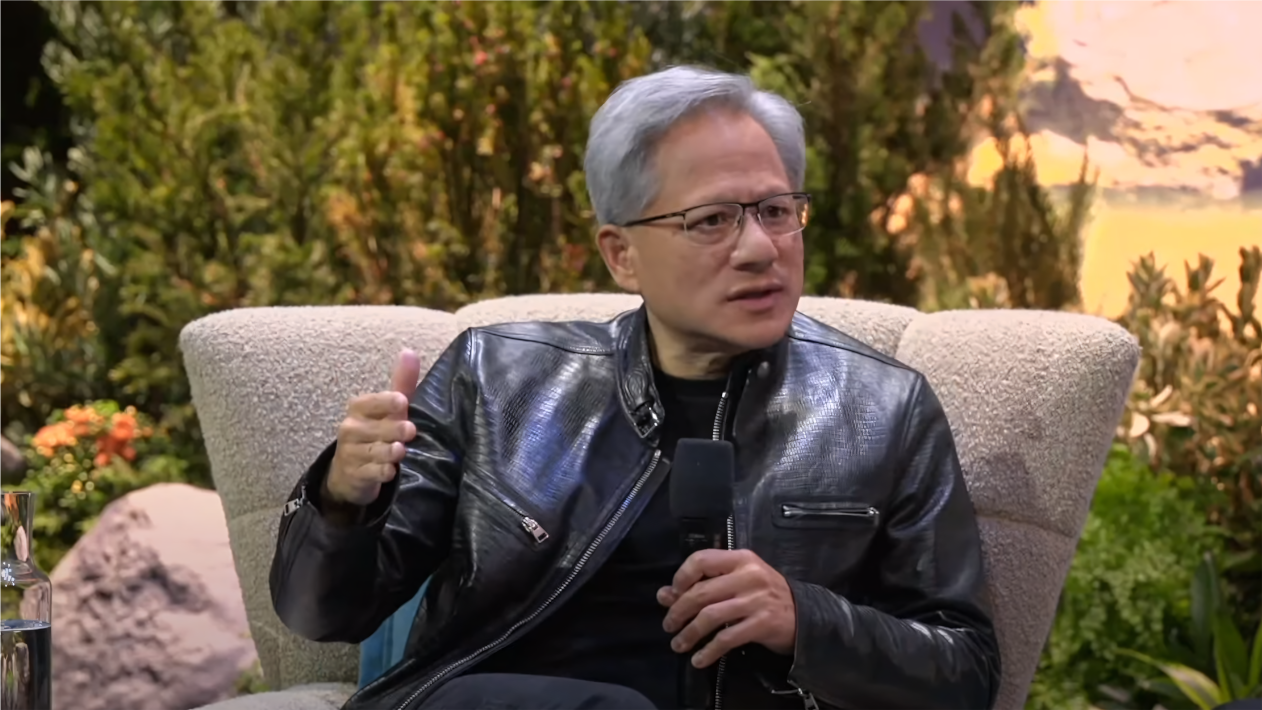U.S. blocks Nvidia’s downsized AI chip as Huang warns China could seize AI lead

The U.S. government is moving to block sales of a new, scaled-down AI chip from Nvidia to China, a decision that CEO Jensen Huang says could let China pull ahead in the global AI race.
According to a report from The Information, the White House has decided to ban Nvidia from selling its latest AI processor built for the Chinese market. The move is a major setback for the chipmaker, whose revenue from China has already dropped sharply due to ongoing export restrictions.
The ban also targets Nvidia’s B30A, a toned-down version of the company’s advanced Blackwell architecture.
The B30A ban could mark a turning point for China
Even though the B30A runs at reduced performance, a report from the Washington-based think tank Institute for Progress says it would still be more than twice as powerful as the best AI chip currently available from Chinese rival Huawei. For Chinese AI companies, that kind of hardware could be a "game changer," enabling large-scale training of language models when deployed in clusters.
The Trump administration had previously hinted it might allow a version that was 30 to 50 percent weaker for export to China, but that door now appears closed. A White House official confirmed the ban on the B30A. Two people familiar with the matter said Nvidia had already shipped sample units to some Chinese customers and was continuing to refine the design, hoping policy might eventually shift.
Huang’s warning: U.S. risks falling behind due to "cynicism" and regulation
Huang’s response was blunt. After President Trump reaffirmed the chip ban shortly after meeting Chinese President Xi Jinping, Huang told the Financial Times, China "will win" the AI race.
He argued that China’s advantages in energy costs and regulatory flexibility give it a long-term edge. While the U.S. and the U.K. are held back by "cynicism," he said, China is taking a more pragmatic approach. As an example, Huang pointed to the possibility of "50 new regulations" emerging from various U.S. states. In contrast, data centers in China benefit from government subsidies that make electricity so cheap, Those lower costs make it feasible for Chinese firms to operate less efficient domestic chips without losing their competitive edge.
Beijing’s strategy to reduce dependence on Nvidia
Nvidia’s position in China has grown increasingly complicated. Beijing has instructed Chinese companies to avoid buying Nvidia hardware in an effort to strengthen the domestic semiconductor industry. Still, people familiar with the situation say the government might allow the B30A to be imported because of its potential to accelerate AI training.
Since the first wave of U.S. sanctions in 2022, China has made it a priority to reduce its reliance on Nvidia. Officials at the Ministry of Industry and Information Technology believe that locally produced chips can replace Nvidia’s products in inference applications. Through informal directives, Beijing has encouraged major tech firms to rely on domestic chips, aiming to build a self-sufficient software and hardware ecosystem that could rival Nvidia’s dominant offerings.
The export controls have had a big financial impact on Nvidia. Huang estimates that China’s AI chip market could reach $50 billion by 2026. In the last quarter, the company’s revenue from China dropped from $5.5 billion to $2.8 billion. A previous proposal requiring Nvidia and AMD to hand over 15 percent of their China-based revenue to the U.S. government has yet to be finalized.
AI News Without the Hype – Curated by Humans
As a THE DECODER subscriber, you get ad-free reading, our weekly AI newsletter, the exclusive "AI Radar" Frontier Report 6× per year, access to comments, and our complete archive.
Subscribe nowAI news without the hype
Curated by humans.
- Over 20 percent launch discount.
- Read without distractions – no Google ads.
- Access to comments and community discussions.
- Weekly AI newsletter.
- 6 times a year: “AI Radar” – deep dives on key AI topics.
- Up to 25 % off on KI Pro online events.
- Access to our full ten-year archive.
- Get the latest AI news from The Decoder.